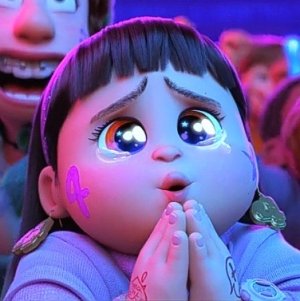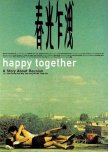
As with other Kar-wai films, it's always the cinematography that lunges at you. Typical of his style. I'd say that Happy Together is probably much more daring than his other films. Often overshadowed by In the Mood for Love and Chungking Express, Happy Together is both a happy and sad portrayal of romance. Yes, it's a love between two men. But instead of focusing on that aspect like other films do, it focuses more on their time together. It's cynical as much as it is positive. Kar-wai won Best Director at Cannes for a reason.
The film also pays tribute to classic noir style. But with a purpose. The black-and-white colors reflect their time apart. And gradually...color emerges. There's color when they rekindle their relationship or as they say "start over" again. The visuals speak as much as the story, as much as the actors. The aesthetics are also reminiscent of other Kar-wai elements -- cramped apartments, sudden close-ups, intense DOFs. But the colors are all retro. They're vibrant and intense. Add some exotic music to that. The setting and scenery are all beautiful. It's so so so appealing to the eyes.
Of course, we have Tony Leung Chiu-wai again. Yes, he won Best Actor for In the Mood for Love but I'd say Happy Together is his opus. It's a much more dramatic, challenging and intense character, he delivered in with more passion characters. He wants Po-wing (Leslie Cheung) but he can't show that but we still know he does -- that part is delivered very well. On the other hand, we have a charismatic Leslie Cheung here. He's able to deliver Po-wing's character with such rawness and explosion of emotions. Conflicted but at the same time very powerful. The chemistry between the two is undeniable.
The film is about intimacy. And it shows that. Chiu-wai and Cheung's acting all delivers that. In the cinematography, in the sounds, it shows all that. Even if Chiu-wai's character speaks in Cantonese while Chen's character speaks in Mandarin, it doesn't create a distance because it shows the understanding between the two. Happy Together is so underrated compared to its counterparts but it's also one of the most beautiful.
Was this review helpful to you?
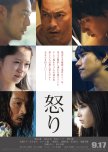
With a talented and star-studded ensemble of some of Japan's most famous names, it's no surprise that Rage shines. Ken Watanabe needs no introductions, the male leads: Go Ayano, Matsuyama Kenichi, Tsumabuki Satoshi and Moriyama Mirai who all have already made names for themselves. Aoi Miyazaki, who's been in the industry since she was four. And the up and coming, Hirose Suzu. I also want to mention the relatively unknown Takara Sakumoto who makes his debut here as an actor to watch out for.
I'll tell you why Rage is a very raw film -- it depicts Japanese rigidity. I don't say that to provide a negative interpretation but there is a lot of suppressed emotions in the society. Hence, these suppressed emotions are bottled up, be it sadness, be it anger, be it loneliness—whichever. The need for catharsis is just too high and I think Rage perfectly depicted that need and gave these characters that chance.
As I watch this film, I too, want to scream, I too want to have a tantrum, I too, want to throw things—I want to release bottled-up feelings. Lee knows how to build-up these emotions that echoes the characters' as much as he builds up the narrative. He knows how to give you the "feels" combined with Ryuichi Sakamoto's score that's just filled with too much dramatic tension, you too, would want to explode.
There are two overlaying narratives in the film, all of which were very cleverly linked not only by the murder and that the three men emerge as potential suspects but are also connected through dialogue, through visuals and through sound. The sound is really the one, to me, pushes the plot. The sounds emit the emotions, emit the passion and emit everything. Lee connects visuals from Tokyo, from Chiba and from Okinawa together with the dialogues and the sound. I think it's a very refreshing way to do so and it makes the three narrative feel balanced.
These narratives, on their own are unique but still keeps the underlying theme of trust and connection. Go and Satoshi's narrative touches on their sexuality. It is very refreshing to see an aloof, almost-silent Go that contrasts with Satoshi's fearless and enthusiastic nature. Miyazaki, Watanabe and Kenichi's narrative touches on acceptance and of family. The lonely, almost weird Kenichi forms a connection with Miyazaki, who has just been rescued by Watanabe (her father) from an abusive sex work. Suzu, Mirai and Sakumoto brings us to Okinawa, of a simpler life, of youth and of curiosity but to me is really the one that resonated with me the most.
If you really want to know who the murderer is, I'd say look at the narrative that's filled with the most rage. Look at which narrative makes you feel the angriest, the one that filled you most with rage and you will have your answer. By the second hour of the film, where it's filled with tears and screaming and throwing, you'd know. The reveal isn't what matters, it's their stories that do. Lee knows how to juggle the three narratives that three of the suspects are all likely to be the killer.
The plot does, disintegrates into a cornucopia of crying, weeping, wailing and just a lot of those (all three narratives stitched together too) so it does overwhelm and to itself, an overexcess portrayal of the characters and their narratives. But nevertheless, very very very impressive performances from the cast.
All I have to critique is probably the lack of a backbone for the killer himself. There is an ongoing question of where the rage comes from. Is it simply from surpassed emotions? Is it simply from being laughed at his pitiful state? Or is it from being pitied? We are never given a straight answer so we can only interpret.
The visuals are stunning. The opening shot of a bird's eye view of Tokyo, to the clear waters of Okinawa to the colorful houses of Chiba—it's beautiful. The visuals are great transitions and there is never the lack of varying colors to depict the scene's mood.
Finally, I just want to say that I will never look at Hirose Suzu the same again. I'm only commenting on her the most because her films are the one I've seen the most. I used to say how Suzu knows how to act, she can cry but there is blankness in it (compared to the way Fumi Nikaido tries) but seeing her, in a very very very mature role, I'm taking back what I said—Suzu deserves all the spotlight she's getting. And with such roles, it's no doubt, she can do more.
Also, Takara Sakumoto making his debut here impresses.
Ultimately, the film is about trust and connection. No, it doesn't tell you who to trust and stuff but it does tell you how it feels when someone you trusts betrays you or someone you choose not to trust just decides to leave.
Was this review helpful to you?
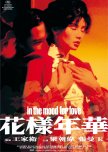
This film is about details. From small gestures, to quick looks, ringing of the telephone and shots of the clock to show the passing of time, it allows you to venture into a unrequited love story that's not painful but not overly dramatic. Kar-wai channels his use of details to move the story forward without too much effort just with simple rain, simple change of clothes or simple montage that exert such beauty it takes your breath away.
He knows how tell a story not through grand dialogues but through body language which is through cinematography. Not much head space here, much head space there, blurred wall here, never showing the face there, it leaves you guessing but also doesn't leave you in the dark. You know what's happening because it's being shown before it's being told. Repetition is also key here. Repetition blends well with time which blends well with setting and ultimately dances around the story.
If Chungking Express' aesthetic is filled with exotic colors, In the Mood for Love is vibrant and exhilarating with different colors even exhibiting some traces of noir style. Similar themes with Chungking, In the Mood for love portrays a more intimate type of longing, one that's filled with utmost desire that excites us through actions and not words spoken. We are plagued with a nostalgic 60s Hong Kong setting detail by detail and it entraps us into this alluring tale filled with cinematic beauty including slow motions and simple focus on blowing smoke; it is sexy without needing to be.
Maggie Cheung and Tony Leung exhibit such tension that we feel the love without needing to do anything passionate. Cheung's beauty transcends while Leung's restrained depiction is admired. There is delicateness present when they act together that just leaves you hungry for more. Of course this is all made possible by the soundtrack, handled by Shigeru Umebayashi. The music exerts feelings and flirts with Kar-wai's mastery of cinema together with the actors' vivid emotions makes everything a complete package.
Was this review helpful to you?
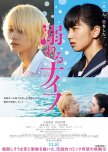
Okay, I've read the manga—and I loved it. That probably explains why I wanted to love the film too. But don't get me wrong. There are things that I loved about the film too. Yes, the actors. No doubt. I am in love with both Nana Komatsu and Masaki Suda and to me, they are the perfect Natsume and Kou. It seems like, in an hyperbolic way, that Komatsu was born to be Natsume, you know.
The cinematography is just stunning and breathtaking. And the OST. Oh god, the sounds. The sounds are of absolute brilliance. There was a scene where Suda is doing the fire ritual and I felt like the cinema was going to collapse because of the raging and roaring of the fire. The cuts are done in many angles, some in slow-motion to be more melodramatic and sentimental. Which would be fine if not for the major problem.
But get this. The film really really failed in establishing one very important thing from the beginning: Natsume and Kou's relationship.
I've read the manga so the narrative itself is pretty clear to me but honestly, if I were someone who didn't read the manga, I doubt I'd understand. Or worst, I doubt I'd believe the authenticity of their relationship.
The manga establishes their strong bond, their strong connection and their strong (almost drowning ironically) feelings for each other. But the film...okay, I get that there is so much manga material to cover in 111 minutes running time and it did feel draggy towards the end—but it wouldn't have felt that way nor would it raise eyebrows if their relationship was properly established.
What I see when I watch are just two 15-year-olds who are trying too hard to cling to each other without any strong feelings—it seem like something de factor being the both good-looking, mysterious and popular. And I felt that was wrong. Very wrong.
That is why ultimately, this love story is doomed from the start. What salvaged it is Komatsu and Suda's chemistry. Or even Komatsu and Daiki Shigeoka's chemistry. And the amazing cinematography and roaring OST. I felt like there was so much more to these characters, to Natsume, to Kou, to Otomo, to Kana—and it felt like they were just discarded.
Even Kou and Otomo's friendship just got ignored and it's such a pity because the friendship plays a major part in how the love triangle shapes itself. Kana plays a bigger role later in the manga and the film just makes her like a stock character. Otomo gets discarded after his use. And the ending is very open-ended (which I would probably not mind if they fixed the crucial element of their relationship).
I feel like roles like this fit Komatsu well. But it's truly the first role where she's done the most drama. I love her (very much) and I have a bias but I will also be honest and say that she still lots to improve because Suda overpowers her. It's not BAD deadeyefish acting, it just needs to feel...stronger, more foreful. This me saying because she has worked with a lot of Japan's top actors (like Yamaken, Kamiki, Takeru Satoh; heck she even act alongside Andrew Garfield).
Though I guess, her timid, almost suppressed acting here works well for her character because her character has to be beautiful and calm and poised even while crying...it's not heavy drama but similar to what I said to Hirose Suzu before, just because you can cry doesn't mean you need to forget how your eyes show the emotion. And Suda's eyes remind me of my chameleon actors Shota Sometani and Fumi Nikaido—they act, they speak.
But I don't know why Suda looks so malnourished here. Honestly. There are times when it's so uncomfortable to watch him because I'm so afraid he'll break because you can literally see how skinny he is (yes Kou is in the book) but it looks unpleasing. I see a lot of potential in Daiki Shigeoka and the up-and-coming Mone Kamishiraishi.
Ultimately, Drowning Love (a title that actually holds a lot of significance which the film KIND OF touched on but not properly though the original Japanese title is Oboreru Knife which translates to "Drowning Knife") does try to remain a faithful adaptation but it really fails in establishing the leads' connection and relationship. It started off right away, very direct (though the dialogue is very poetic and that didn't work well because it felt like youngsters sprouting wishy-washy words) without much context or at least shape it properly later—which they didn't. It felt like a film with no goal which as romance wouldn't be a problem if you're telling a narrative though here, it felt...directionless with no clear intention. But still, I'll tell you that you will still feel some *feels* because the sounds and visuals would keep you there.
Was this review helpful to you?
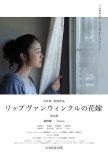
Iwai explores loneliness, longing, companionship, destruction and construction of Japanese family, the rigid nature of Japanese society in the modern age. This makes Bride both a affirmation and subversion of Iwai's earlier films that I've watched like Love Letter, All About Lily Chou Chou and Hana and Alice. If those films reflects nostalgia, Bride seeks to redefine how the age of technology may bring people closer but also further and how this creates and define human connection.
Bride still incorporates Iwai signatures like sun flares, soulful montage, instrumental music and bringing in small scenes to bigger ones. Yet, Bride stands as its own. It's not as romantic as Love Letter of Hana and Alice nor as the coming-of-age of All About Lily Chou Chou. Despite a 12-year hiatus, Iwai doesn't lose his touch. He is still a very lyrical storytelling in a 3-hour emotional tale driven by an impressive cast, beautiful cinematography and heart whelming music.
When it comes to cinematography, Iwai's films are on the top of list. But of course, the credit goes to the film's cinematographer, Chiga Kanbe. What I love about Bride is how Iwai (and Kanbe) tells some much with its visuals and music that doesn't overpower each other even if sometimes, the dialogue is barely heard. The music by Mako Kuwabara embraces its stunning visuals. The overall tone is filled with sheer melancholy reflected with the littered cold colors, we too, are plunged in Kuroki's trauma paired with unstable camera angles showing a distorted vision.
Iwai knows how to tug at your heartstrings. He knows how to many silent shots mean so much more later. And finally, he knows how to build up drama and tension. It's 3 hours long (shorter in other countries) but the tension never subsides and the reveal particularly of Ayano Go and Cocco particularly laid down every detail shown prior to it. It makes the execution so satisfying. Yes, 3 hours is very long. Overly long and the film could've been shorter but very scene counts. Every scene matters. Though they seem random, they're not. That's how I felt watching this.
The cast, led by Hana Kuroki has amazing chemistry together and each of their characters contrast one another that brings out the personalities more. It's not a lopsided portrayal despite Mashiro (Cocco)'s later appearance in the second half. These characters aren't stock or just for display, they are there for a reason and their characters are explored.
Kuroki plays Nanami, a timid doe-eyed wallflower. Kuroki embodies a certain innocence that makes Nanami's somewhat bittersweet ending...worthwhile. She shines, in a subtle, very modest way but she shines. Though I would say Go is my favorite. He just has this charisma that pushes its way through. Playing a jack-of-all-trades, part Mephistopheles, he has done it with such clarity. Cocco is the light of the film (as ironic has that sounds given her character's fate) because of how vibrant and how lively she is compared to Kuroki's character.
Iwai doesn't sugarcoat these characters. He establishes them as such and moves on as much, making their emotions and experiences so much more connective with the viewer. He shows Nanami as awkward and docile by her experiences in school, having no relatives to invite at her wedding and eventually her own marriage.
Kuroki and Go stared in Flower of Shanidar (2013) which explains their good chemistry. But Kuroki and Cocco also share this same chemistry particularly because they're opposites of each other which really brings out their own respective personalities. Perhaps their bond is more than sisterly, maybe even erotic but I see it as more platonic bond of two lonely women, trying to find comfort in a directionless world.
Very much like Rip Van Winkle, these two women wake up in a world that breaks away from their past and try to make the most out of it...to be happy.
Bride also stands out because of how symbolic things are and how metaphorical it is. There is a scene where Kuroki approaches Go, some might see as romantic but Go's lines are metaphorical which relates back to the reveal of both his and Cocca's character. Seeing how Iwai reverts that and how Iwai chooses dialogue as a vital component in storytelling.
Finally, I want to say that there is so much suppressed emotions in this film which perhaps echoes the rigidity of Japanese social mores. Cocca's occupation is a very clever and important choice that relates to that. Not going to mention here explicitly but her job embodies the freedom and rejects this rigidity. Overall, it ties back to what the films show. Leaving yourself bare and exposed is a more intimate emotion where throughout the film, you suffocate by how much people are keeping and how fake they can be especially in this digital age.
Was this review helpful to you?
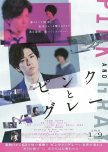
I really love Yukisada's use of light, color and tone here. And to me, that has always been a strength of his since serving as assistant director in April Story, Love Letter and Swallowtail Butterfly (yes, Shunji Iwai's films; hence, the similarity between the two's use of light and color).
Another signature of his is using timelines. He subtly uses that here too. He shows how characters develop, their experiences and how these changes them is a signature. Seeing that Pink and Gray is an adaptation from a novel, which bears similarity to his previous films as well. And finally, Yukisada likes to incorporate love and friendship in his narratives and make them focal points for his characters to develop. That is inevitably true here as well.
Needless to say, Yukisada stays true to his style. But also brings something new to the table. Here, the mystery element is something new. And say, even until the end, it's still mysterious. Not everything is answered. It's very...open-ended. His films to me, have a soft side to them and while the friendship aspect here is that, there's also this desire for answers. The second half of the film also has a daring decision he takes as a director. Is it effective? I think it depends on your cup of tea. It has a purpose to the overall story but it's metaphorical that in a way...seems unnecessary as well.
Perhaps applaud also goes to the great young actors here. Yuto Nakajima, an idol from Hey! Say! JUMP! and the film serves as his feature debut. It's easy to compare it to his co-star, Masaki Suda, a versatile actor with many features under his belt. But Nakajima shines as his own, playing dual characters with clarity: one being a pretty-face docile character and the other a more assertive one.
But since I have a personal bias towards Masaki Suda, my love still personally goes to him. Playing Riba-chan, an angry and even dark misfit is a role not foreign to Suda. In fact, roles like this are his best. Baring a charismatic and attractive demeanour, he also plays Naruse very well. That laugh while blood pours from his mouth is haunting. Kaho is very much the same. Playing a timid, quiet girl at first and then transforming to a seductive heiress. Love the addition of Yuya Yagira here too.
Besides the use of light, color and tone, I think that the score also makes the film feel much more sentimental. I really love how Yukisada played with the narrative here without dropping any hints whatsoever, the twist/reveal at the end makes it so much more satisfying.
Was this review helpful to you?

Shadows has an amazing line up: Sang Kang-ho (Memories of Murder, Thirst), Gong Yoo (Train to Busan, A Man and a Woman) and cameo appearance from Lee Byung-hun (A Bittersweet Life, Inside Men) whom Kim has worked previously and Um Tae-Goo (Coin Locker Girl, Veteran).
Pulled at the edge of your seat from start to finish, Kim doesn't disappoint tossing action sequences and twists that he carefully crafts and builds in suspense, only to laid them out with the greatest satisfaction, it leaves you hungry for more.
Just like "I Saw the Devil" and "A Bittersweet Life", Kim starts Shadows with little-to-nothing description of what's going out, only to follow it up with an action-filled chase scene, an amputated toe nail and blood splashed across the wall.
Shadows' 30 minutes train sequence is one of the best I've ever seen. This is the juice. It builds the plot as much as it shapes it and moves it, that includes the characters too. Accompanied by a more menacing version of Ravel's Bolero, the adrenaline just doesn't stop. I, for one, had to pause the film just so I could breathe. Kim brings us from compartment to compartment from character to character from discoveries to discoveries.
Cinematographer Kim Ji-Young does a fine job of transporting us to a 1920s setting of South Korea and Shanghai (the accuracy may be question but it looks beautiful nonetheless) with retro-like colors and saturated tones. Kim ravishes in extremism at times, with loud shoot outs, dialogues delivered in sinister whispers, loud slapping sounds, to torture scenes that likens to his other film, "I Saw the Devil".
Kim channels his narrative into powerful loyalty that seems like The Age of Shadows take a patriotic approach but ultimately, this thrill-filled film is entertaining as much as it is greatly crafted.
Was this review helpful to you?
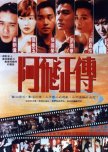
If I've said that In The Mood for Love will make you feel exactly just that and 2046 would make you in the mood for heartbreaks then Days of Being Wild will give you the mood to be just that—wild.
Days of Being Wild is only Kar-wai's second film and it both shows his infancy but also how he shaped his identity as a director as well as his characters, some of which have regularly appeared throughout the Informal Trilogy.
Leslie Cheung plays the young and charismatic but emotionally unstable, York who is a womanizer. Cheung, whom I have seen in Happy Together with Tony Leung is really a charismatic character. He embodies a sexiness that's untamed and draws you in as a viewer. It's no wonder that two of his flames are so madly in love with him. Much like in his character in said film, Cheung here is also on the verge of self-destruction further heightened by his familial identity.
But Kar-wai doesn't just focus on Cheung. He also gives us Maggie Cheung's Su Li Shen, Carina Lau's Mimi and to an extent, Andy Lau's Tide perspectives—all of whom are grappled with their own frustrations that ultimately involves York. It's York's own biological identity that shapes his relationship with women and eventually, how he lives. He is damaged but it is not romanticized. Kar-wai isn't a pessimist, he is just showing rawness.
Kar-wai traits also plague the screen: cramped spaces that seem to emit suffocation, unusual angles highlighting the characters and their interactions, dark and damp and nostalgic setting—all embody Kar-wai's consistency as a director and how his filmmaking drives his story as much as character even if it's lack of a strong plot.
There is so much tension in this film, so much dramatic build-up and so much longing. How much does Li Shen long for York? How much does Mimi long for York? How much does York long for his mother? How much does Tide long for Li Shen? Each minute is made with beauty, each glimpse, each touch feels like it's consuming you. Just like Li Shen and York's memorable 1 minute, Days of Being Wild has been another memorable beauty of a film.
This film, itself, is about identity. Who is York to his biological parents? Who is Li Shen without York? Who is Mimi when she is not Mimi? Who is Tide as a sailor? Every fleeting seconds matter in discovering who we are and how each person in our life shape us.
Was this review helpful to you?
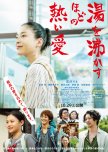
Her Love Boils Bathwater sets itself to be a sentimental family drama. But Ryota Nakano takes a more light-hearted approach. Instead of following a very dramatic ill-single-mother-making-her-time-worthwhile take (and it's very tempting to), he doesn't. Instead, he rallies his great cast to launch the story foreword.
And that's the film's greatest strength—its cast. Hana Sugisaki won Best Supporting Actress for her role and she proves once again that she's one of Japan's most promising young actresses perhaps taking on the footsteps of the chameleon actor, Fumi Nikaido (a personal bias).
Perhaps being Japan's entry to the Best Foreign Film list is a little bit of a stretch since the film is simplistic but heartfelt, strengthened by its cast. Its little moments and character interactions are its charm. Nakano doesn't patronize these characters—he shows them as flawed ones and as imperfect beings but what's great is how that all plays out.
The cinematography is stunning, paired with lukewarm colors yet vivid. The score truly embraces the scenes. Yes, I cried.
Was this review helpful to you?
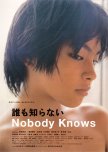
Inspired by true events (although fictionalized a little bit) by the Sugamo Child Abandonment Case, Koreeda presents an euphemized, less grim telling of the true events. It's a melodrama that's not depicted as a melodrama but carries the same intense and impact. I absolutely loved this film from the start to finish. Koreeda channels a contemplative style where details, time and dialogue drives the storytelling forward through its characters' actions. He maximizes the potential of his actors because it's presented in a way that's not exaggerated, not hyperbolic and not overly dramatic despite the film's central theme and plot.
I absolutely loved this film no doubt. Koreeda shows the passage of time through precise details from close-ups of feet, hands, tearing away of nail-polish, changing of the hair, color of the clothes and so on. That little Tokyo apartment depicts all the passage of time. The long cuts and the sudden shots of the children all show raw vividness and sincerity, it's as if they are being shot in their natural state which is how Koreeda really wanted it. The bond and the chemistry between all four children speaks volume and makes their presence feel very sentimental.
All four actors have zero acting experience prior to this film and you know what? That doesn't matter because it just feels so natural and so real that it doesn't matter. Young Yuki is just adorable. Shigeru though crazy is just cheerful. Kyoko is just simple and big brother Akira exhibits a boy-beyond-his-years. You see how the children change through their eyes and it's a very different perspective given to us as audience. The limited presence of adults did not matter because the young ensemble dominated the film well enough. Despite the serious subject, you cannot help but hate the mother (played by J-Pop star, YOU which IMO is a good choice) because each time she's on screen, she's shown as a bubbly, lovable mother. YOU's acting of a mother that craves love, somehow childish and the shots of putting on make-up all show that she craves the carefree life. But you can't hate her for that and Koreeda does that well. He also doesn't make you feel pity for the children instead he makes you admire them. These are all channeling positive emotions yet it's not a make-good film, it's a poignant coming-of-age portrayal.
Yuya Yagira, only 12 when he made this film, won Best Actor at Cannes at 14 for his role in this film beating famous names like Tom Hanks and being one of the youngest actor to win the award plus the first Japanese to do so. And he deserves it. Yagira acts with his eyes. He keeps the same all stoic face even when he's angry, when he's tired or when he just wants to run away from it all. He keeps the face. But it's the eyes that does the acting. He exhibits a maturity that's trapped in a child's body. A role where one is forced to grow up is shown so well through the children's little desire of toys, of games, to time outside of that cramp apartment, of friends, of baseball - these are all little details that Koreeda, the children and Yagira depict with intense vibrancy. Yagira is the anchor of this film showing such an emotionally complex portrayal of Akira.
The aesthetics of this film is just so nostalgic. Despite the very melodramatic theme, it doesn't feel grim or sorrowful so as a viewer, you feel hopeful. It's just so light that you can't help but feel good. With the in-depth use of camera, you are in there with them sharing their secret and you are helpless to do anything. Everything is overwhelming. But it's the overwhelming that makes you feel helpless as a viewer. This is great engagement between you and the film.
Koreeda uses symbolism, foreshdowing recurring shots that drives storytelling forward and perfect example of "Show Don't Tell"; is channeled throughout the film and it just touches you. I can't remember how many times I smiled seeing the same details used again and again to drive the story. For example, the opening shot shows Akira touching a pink suitcase, when the family moves in to the apartment, Shigeru is in that suitcase (I'll skip explaining why as to not spoil so much) and that very suitcase is used for a crucial plot element in the final half of the film.
Recurring use of a pink nail polish as well to show the mother's desire for youth and freedom and love and how Kyoko dropped it (another symbolism) and how the mother tried to wipe the stain (another symbolism) and how Kyoko is touching the stain months after the mother leaves (another symbolism) and the fading away of the nail polish shows the passage of time. It's repetition and making use of details so precise that makes the presentation of destruction of this family look so good and so beautiful and so clean even when it shouldn't be. Koreeda knocks you off your feet even when he doesn't have to try too hard.
Nobody Knows is not a film that's suppose to make you pity these kids (the ending is open-ended in some way) but it's a raw and vivid portrayal of family, of togetherness and of love and of courage shown through little details and utmost simplicity.
Was this review helpful to you?
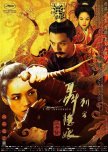
Instead, it is more for those who want to see a film and appreciate cinema as an art form. Hsiao-Hsein makes use of cinematic beauty to tell his story which is loosely based on the 9th century story, Nie Yinniang. It's a turtle's pace story that drags its viewer on. With long cuts to wide angles to old school panning, Hsiao-Hsein channels in traditional storytelling. There is a lot of ambiance shots, little dialogues and more expression to move the story forward. As a viewer, you focus on the cinematic beauty. It's a cinematic ballad of Asian context.
True enough, it might be difficult for people to follow the plot. The summary might even be misleading because I see no romance here. Instead, I see more of an exploration of one's identity but perhaps a little too less. The lack of dialogue is overshadowed by the overwhelming amount of wide setting shots that makes you, the viewer decide most of what happens. There is little close-up of characters so you are in total control when it comes to interpretation.
The Assassin's strongest feat is definitely it's visual allure that explores the power of stillness (through the cinematography) and silence (through the lack of dialogue and use of music) that brings an unease tension, excitement and anticipation. It's almost as if you're watching a poetic piece, embedded in mystery all the while embodying precise movements and careful gestures that speaks to the camera. The lack of dialogues amplifies the action creating literature-like atmosphere.
Shu Qi reminds me of Chinese actress Zhang Ziyi, her movements are so graceful and full of clarity. Her stone-cold face and unstained expressions just captures the assassin role so well. Hsiao-Hsien won Best Director in Cannes for this film and also swept 8/9 awards in the Asian Film Awards among others. In the end, it's really the ice-pole pace and the uninteresting characters that'll make you keep it at arm's length.
Was this review helpful to you?

Not giving too much story-telling here so I'll just say that I grew up with Hana Yori Dango (Inoue's hit-TV series that shot her to fame).
The plot of The Snow White Murder Case is pretty straightforward. There's a crime. Of course what's next is to find the suspect. But what SWMC does differently is instead of trying to pinpoint who the suspect is, we already have one. Miki Shirono played by Inoue. What's left is to identify whether Shirono is really guilty or not. By all means, it seems that all clues lead back to her.
The film features several other characters, Noriko Miki, the one who was murdered, Yuji Akahosi, a reporter trying to solve the case for his 'big break' and at the same time, tweeting updates (which is not allowed in his job), Satoshi Shinoyama and Eimi Mitsushima, both Miki and Shirono's co-workers.
I think that Shirono's character is the one most explored and that's effective given that she is the suspect, in a way, it made her character richer and someone the viewer can sympathize with rather than hate. But that's not to say that the accounts of the other characters are not in vain because they are the pieces of the puzzle that make the story more structured and strong. The flashbacks are great additions to make everything tighter.
There is great storytelling here. The testimonials of the different characters, from co-workers, to the head, to Shirono's neighbour and primary/secondary classmates makes it all the more compelling. Why? Because as a viewer, you need to follow these testimonials to build and finally see the bigger picture. Then you judge. Are all the testimonials true? How can you judge if one is lying or not? That itself is enough to make you focused and think, it's not entertainment but it's also about you as a viewer being involved in the process.
Maybe I'm a little biased when it comes to Inoue but she is definitely one of the greatest actresses of her generation. I have seen her play a tomboy-ish, loud, fierce and strong character in Hana Yori Dango. I have seen her as a girl madly in love in I Give My First Love to You. And here, her performance is superb. The purity, innocence and plain Jane parts of her character here were delivered well. Everyone is full of angst and jealousy and such yet she is the only one full of pain and showing that as an actress makes her the central focus.
Nanao as Noriko Miki is also great. She is able to become flexible with her character, sometimes nice, sometimes not. And it's that type of acting where you just become annoy with the character and you know it's effective because the acting is good enough to make you annoyed. Go Ayano as the desperate Akahoshi is pretty sympathetic to watch and I think his performance also made them film compelling given his up-to-date tweets.
And those tweets made the film show another side of murder mystery. It's showing how the internet (or technology in general) can either help you or condemn you. There's those detective elements and aspects that reinforces the film's objective, making sure you stay focus on the goal as a viewer much like the character.
Cinematography's good. Perhaps there's a tendency for conversations to be long and making shots last longer. But beautiful setting. Not to mention the beautiful score especially by Serizawa Brothers. I love the connection with Anne of Green Gables and the timeline that the film chooses to go back to and tie the whole thing up.
All in all, it is a murder-mystery but it gives you a different side highlighting to what extent would you actually believe people just to get to the answer? In the end, I don't think it'll give you much of a surprise. But how things came to be perhaps might. You would eventually feel bad for the suspect and hate the victim. This film is all about questioning. But that's not to say it's all just about murder. It is the central focus but it's not too heavy on that, there are instances where scenes are light, funny and even dramatic (especially with regards to Shinora's past and I love that).
Maybe the downs of the film is there are times when it seems to good to be true. Sort of wishy-washy. Like you'd actually start to question if such things are possible in real life. Hypocrisy if you think about it since the film tries to establish the "questioning" part. The goal is there true. But the message the film wants to send needs to be stronger. To me in some way, the Curse aspect seems out of place and is not too in sync with the story line though I understand that some of Inoue's past are needed to make her character stronger. (like the reunion-ish with the childhood friend?) Still, some parts of it are questionable.
Overall, Snow White Murder Case is a compelling mystery-thriller. It gives a different side to the story and has great actors especially Inoue's acting.
"Good things are coming."
Was this review helpful to you?
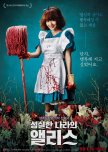
Firstly, Alice isn't even the main character's name. Her life is more similar to Cinderella than it is to Alice. But I guess it's a play on the words, "Wonderland" and "Earnest." Our heroine, is, in no way, in a wonderland. She hopes to be. She longs to be. She fights for it through earnest determination. And still fails.
This says a lot. Japanese and Korean society relays very much on the concept of hard work and discipline that they have inherited from China's Confucianism. It's no surprise that having to choose between factory life or "elite" life through studying, she chooses the latter because supposedly, education equals to success equals to eliteness. But later learns that her numerous certificates are useless (or no longer in demand) in an advancing technological world.
Soo-nam is at its core represents both affirming this society of hard work and also ultimately rebelling against it. As she experiences that despite all her hard work, despite all her conformity in doing things to achieve her goals—they are in vain. Feeling betrayed by these ideals, she rebells against these imposed rules.
Hence, why there is anger. But it's not the all-out nor is it hidden anger. It's always been there but it's been subtly shown that it didn't feel too overwhelming. In so many ways, it's dark comedic style and almost-Amelie-like editing style helped to show how she's making fun of things instead of making it too overly dramatic—even if the subject matter is.
But ultimately, this style also drags some of the film's major flaws. In some ways, it's also showing that women in love will do anything for the man they love. Just like Memories of Matsuko, does she really need a man in her life? For all the work she's done, is it truly worth it?
In this day and age, women want to be independent and work for themselves. While there's nothing wrong with wanting to build a family, I think there's this underlying tone that seems to imply who gets to give more to the other. It's not so clear-cut and there's certainly a grey area there but I think that's the part of the film that bothers me the most.
Was this review helpful to you?
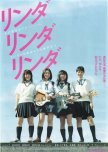
See, I do play the guitar and the piano (and used to sing as well), but Linda Linda Linda is more of classic Japanese rock than my usual, or at least what I've grown up with. So I couldn't connect with that aspect. But I still absolutely love the simpleness of the film and the fact that it doesn't try too hard.
Nobuhiro Yamashita uses tracking shots as if to show the growth and progress of the characters. He also knows how to contrast them especially when all the four leads are in one frame. The cuts are long as if the camera just keeps rolling as they're all just acting naturally. That's Linda Linda Linda. Watching it just feel so...natural. So relaxing and at the same time, full of energy.
Bae Donna (who starred in many Hollywood films including Cloud Atlas) shows alienation well but not in the way that will make you pity her. She carries it in a simple natural yet. Aki Maeda, Yuu Kashii and Shiroki Sekine (bassist of Base Ball Bears, whose songs were part of the soundtrack) have such good chemistry on screen, each with their own unique personality that compliments each other.
Well, at least you have a lovely soundtrack to enjoy. Blue Heart's Linda Linda is going to give you Last Song Syndrome (just like it did for me).
Linda Linda Linda is a simple high school tale of friendship. (No drama, no heavy crying). So it doesn't need to be too much to be compelling. If you want something light and at the same time, fun, this is a good one.
Was this review helpful to you?
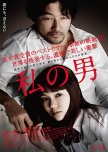
If you think Vladimi Nabokov's "Lolita" was difficult to stomach or Stanley Kubrick's film adaptation was daring enough at the time it was released...well, expect My Man to level that up. With not only touches and kisses but straightforward intimate, sexual scenes between Nikaido and Asano will probably leave you disgusted, angry or just pure disturbed. But that's probably Kumakiri's goal. It's not the dialogue that will make you feel the emotions rather it's the actions with dripping rains of blood that symbolize this forbidden passion.
A lot of watchers compare this with The World of Kanako (which Nikaido also played a part) but I tell you, this is nothing like Kawaki. If Kawaki is fast-paced and overwhelming, My Man is slow-paced, ant-climatic yet its in the actors' performances that pulls you in and pulls the story in. Kumakiri omits a lot of explanation, how the characters feel, what they think, what others think, etc. which gives us, as viewers freedom yet it could also cause confusion especially in a film that explores such a story.
There are some foreshadowing, some repetition and more importantly, contrast. A lot of it. That's what makes each character stand out and it snowballs the plot (a good sentiment as the film is set in Hokkaido, the coldest region in Japan, expect to see lots of snow here). That setting makes you feel colder towards these characters (instead of warm) and it creates that distance to feel sympathize for Nikaido and Asano's relationship even as their characters start to descent into chaos and madness.
Nikaido as Hana is amazing (I mean she's only 1 year and 1 day older me and her boldness with this role). She deserves to be the "It" dramatic actress to watch out for (I heard she is amazing in Himizu as well, which I will watch after this!). She has this ability to portray a bubbly, energetic schoolgirl that LOOKS innocent yet holds deep secrecy (of the forbidden relationship and a traumatic past) and in some way, that makes her scary. And effective as an actress. She is able to portray Hana's deterioration because of this relationship not verbally but emotionally. Later on, she becomes a independent woman yet holds a sense of distant and quiet destruction inside of her but not with such a dull expression rather with the eyes. She carries herself and not let her older co-actors do that.
Asano works well with Nikaido (weird to say that but yes). He doesn't provide Jungo's character with anger or destructive features. Yet he also doesn't soften his character, through his actions we hate him. Through them, we don't feel bad at his dismay yet we can't utterly hate him because Asano doesn't make Jungo hate-able. In some ways, Nikaido's Hana carries his character as he becomes dependent on her yet Nikaido's performance blends in well with his.
This movie is not for everyone, definitely. Yes, it can be disturbing and not an easy watch and definitely twisted. But it's also such films that portray things that happen in society especially those who went through so much (whether it's right or wrong is up for debate and up to you). Though, if you expect a conclusion, don't. It seems that Asian films don't really have a solid one. Instead, focus on the journey of these two.
Was this review helpful to you?

